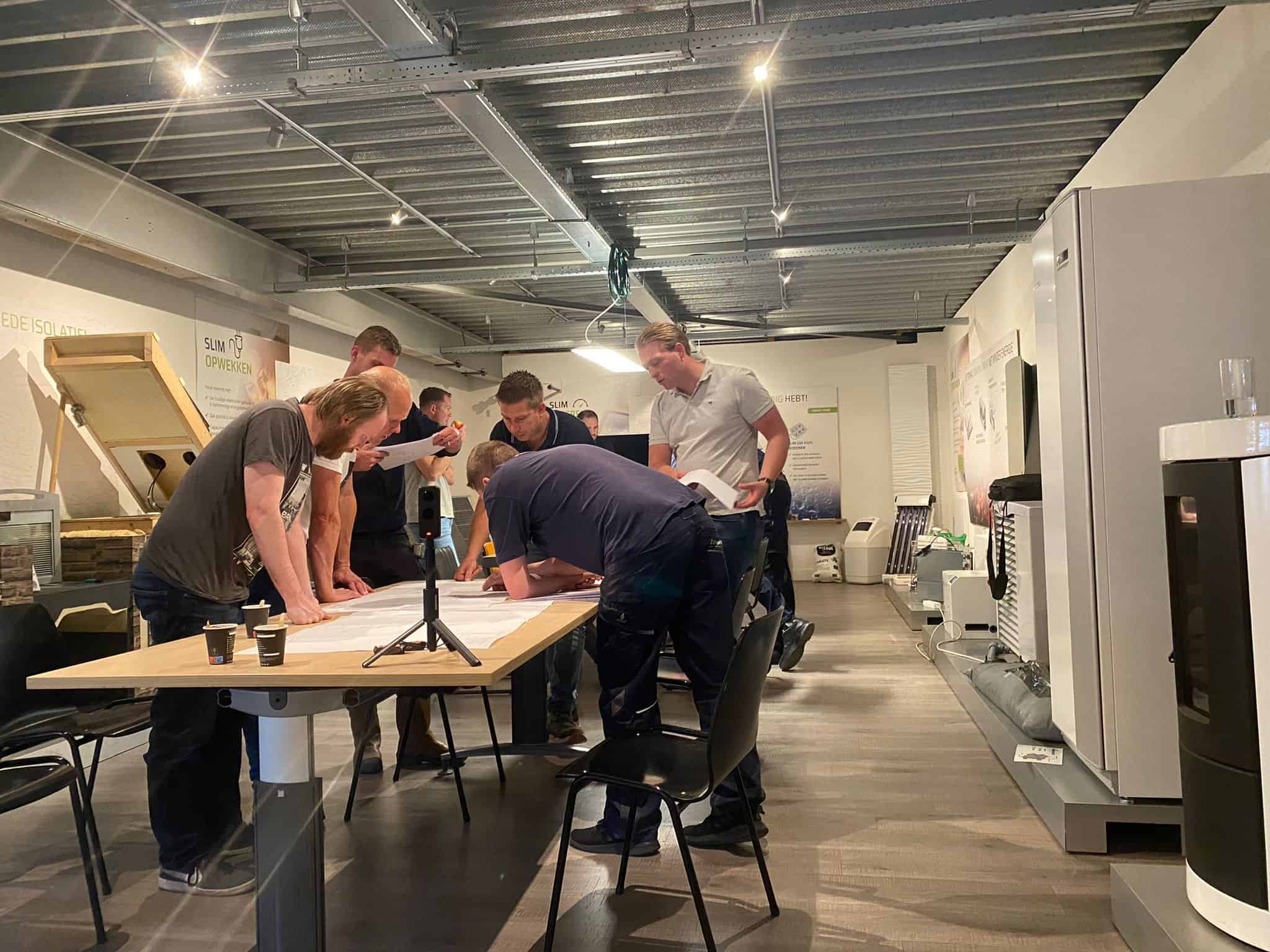
Globalization has pushed the manufacture of many of the goods we use every day far beyond our field of vision. In recent years, awareness of the responsibility that consumers and companies have for all manufacturing and supply chains of these products has grown remarkably. But how can human rights standards and sustainability in the vast and wide-ranging supply chains be made visible and be improved? Sustainabill has developed a platform that enables companies and subcontractors to identify concerns and work together on self-imposed human rights and environmental objectives. IO spoke with Klaus Wiesen, one of the founders and CEO of the start-up.
“We have developed a cloud platform that enables companies to completely unravel their supply chain. It’s all about creating transparency within the extended supply chains. The company, our customer, invites its supplier to create a profile on our platform. They invite them to disclose the locations where they manufacture their products and how products, raw materials, and materials are processed. Direct suppliers are encouraged to do the same with the upstream suppliers. So that these requests move step by step along the supply chain to the source of the raw materials.”
Sustainability in the supply chain is only attainable through cooperation
The joint venture between Sustainabill and its clients kicks off with a webinar. Companies pay a licensing fee and learn to work with the platform. In the beginning, they are supported and guided by Sustainabill when it comes to importing data and unearthing its supply chain. Later on, the companies continue to receive advice but go on to manage their project on the platform by themselves.
The aim is to clarify whether the upstream suppliers meet set standards in environmental protection and occupational safety. If this is not the case, the companies can work together with the subcontractors to remedy these shortcomings. The platform can be used to check whether or not any improvements have been implemented.
Of course, the question arises as to how data on a platform can make the actual conditions on a given location clearly visible. How is the accuracy of this data verified? It is not the task of the company to guarantee that the various information is correct at every point. But by merely bringing together a large amount of information, any shortcomings can become visible as well as provide an indication of whether or not the information is correct.
Databases are used in the background for that purpose. First of all, a check is made to see whether the company location exists at all. Then feasibility checks are carried out. For example, questions are asked in order to determine if the information on a company’s manufacturing output and energy consumption is realistic. Is everything credible? How much energy do other companies in this category use in this region? What was the level of consumption in previous years?
Proven supporting documents are requested to substantiate the information. If any discrepancies are found, a review is launched. Sustainabill works together with verification service providers, which are sent to the customer’s site if needed. This allows the testing service, which is extremely expensive, to be used in a more targeted manner.

“We do not check things out ourselves, but identify risks and highlight them. Risks areas automatically become obvious via the platform. Additionally, we provide support to shed more light on the situation,” Wiesen explains. “But the journey does not end there. Because the second step is to make things quantifiable. The overriding aspect here is greenhouse gas emissions. This involves requesting concrete data on energy consumption or fertilizer use, for instance. This enables us to arrive at precise values for CO2 emissions. Customers can work together with their suppliers to reduce greenhouse gas emissions.”
Focus on human rights and environmental protection
Deforestation is an important focus when it comes to greenhouse gas emissions. Here Sustainabill supports its clients by using geoanalysis to determine if deforestation has occurred in a particular area. Human rights are the second major focus alongside environmental protection. Here, the focus is on occupational safety and child labor. Information is obtained from the company itself as well as data from external partners. This could, for example, reveal whether the company’s name has ever been mentioned in connection with child labor. The third major focus is the circular economy along with strategic, critical raw materials.
Companies can ask what types of raw materials their product contains. Under what working conditions have they been extracted? What can be replaced with recycled materials? Again, companies can work with their suppliers to use more and more recycled materials. It is therefore always a matter of disclosing any issues and constantly working together to achieve improvements.
Ultimately, this is still a niche field in spite of everything. But it is growing exponentially and that is terrific.
What motivates companies to make the effort? “From our point of view, it is not easy to distinguish clearly between the ethical and monetary motives of companies in this. But we do see the very curious situation that the pressure from society, from consumers but also from investors, is much greater than the pressure that legislation creates. This means that politicians are clearly lagging behind the demands of consumers and investors. The companies we work with really do have this approach: they are striving to become more sustainable. In the case of greenhouse gas emissions, it is particularly noticeable that companies are setting targets, and are doing this more and more often for their supply chains. They want to be in line with the goals of the Paris Climate Change Conference and tackle this together with us.“
The turning point came with Fridays for Future

The biggest challenge for the company was that they were years ahead of the market when they were founded in 2017. There was no demand for their product at that time. This all changed with Greta Thunberg and the global Fridays for Future movement. This turning point was clearly noticeable, says Wiesen. In the meantime, large companies have recognized the issues surrounding sustainability and human rights as essential to their continuing existence. In addition to the companies themselves, investors have also come to acknowledge the value of having a positive social impact through their activities. Take, for example, the current investors in Sustainabill, GLS Bank, and BrainWeb Investment.
“Ultimately, this is still a niche field in spite of everything. But it is growing exponentially and that is terrific,” Wiesen adds. ” In the future, I would like to see companies fully understand the relevance of their supply chain. And not just the large companies that are in the public eye, but small and medium-sized businesses as well. And we need to create a legal framework. The Supply Chain Act was a good starting point for this. But it was canceled in the wake of the Corona crisis. I sincerely hope that the corona crisis will now be seen as an opportunity to steer investments in such a way that economic incentives also promote sustainability. It is very important that this should go hand in hand now. That the economy is boosted and restored – but also with a focus on the European Green Deal and the notion of sustainability.”








